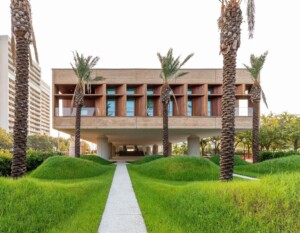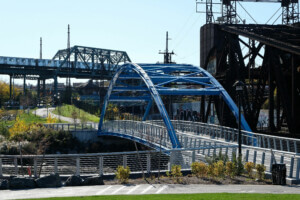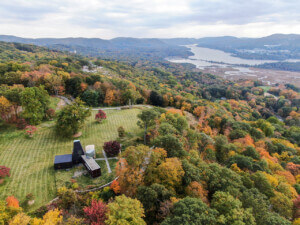Landscapes—whether they be a public park, a playground or an entire waterfront—like buildings have a transformative power and responsibility to tell rich stories; they can paint a narrative of the past and serve as models of urban design. In our final end of year roundup of 2023, AN looks back at the top landscape stories of the year, from new parks striving to redefine cities to a town meeting in the Hamptons to stop a proposal for a public park.
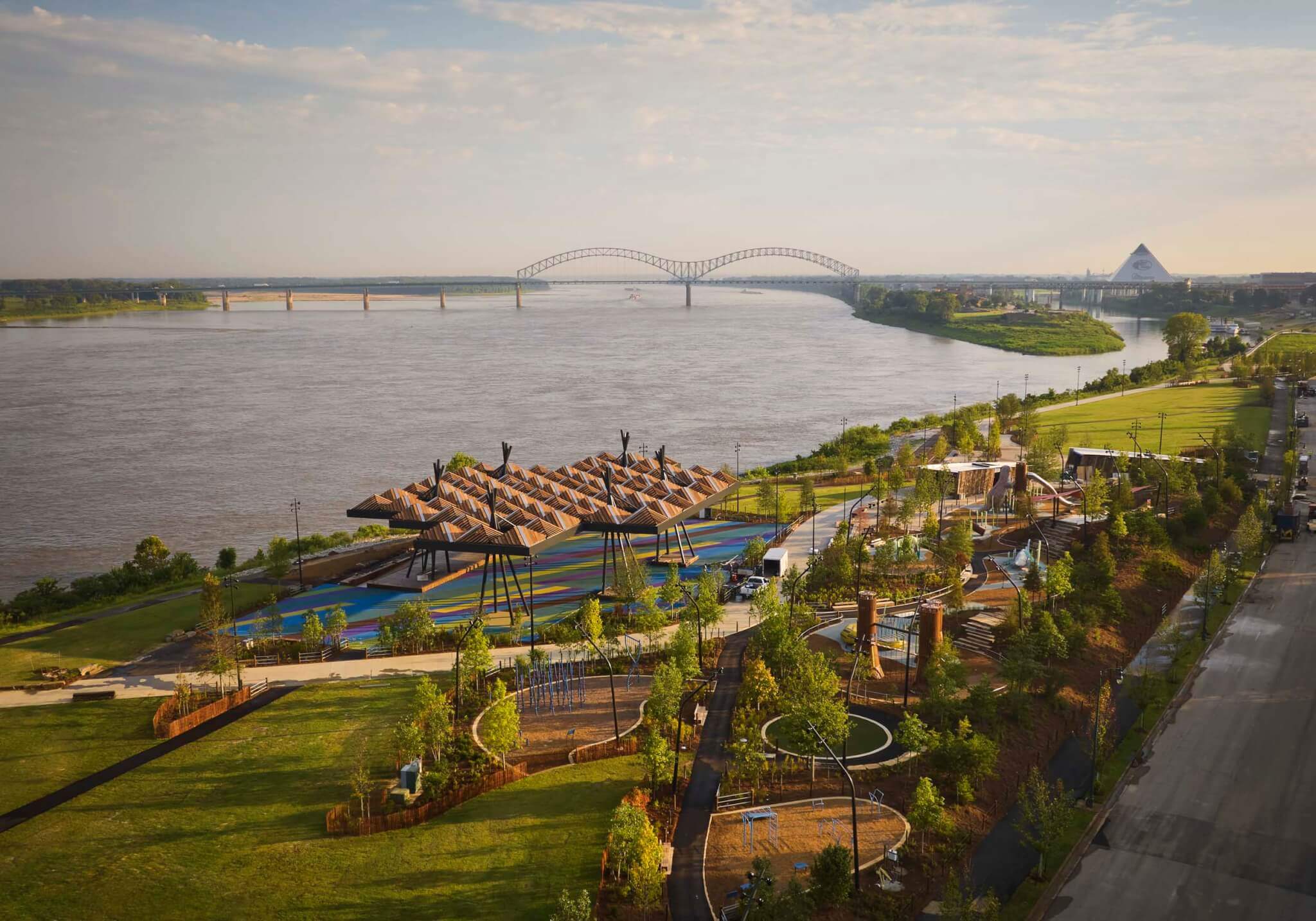
Tom Lee Park in Memphis opened, paying homage to recent and past histories
At Tom Lee Park in Memphis, Tennessee landscape architecture firm SCAPE and Studio Gang delivered a public greenspace that prioritizes native species, and adds new community gathering places and recreational facilities to the banks of the Mississippi River.
Beyond the pathways winding through the park is a playground with sculpture modeled after aquatic animals. Additionally, two support buildings from Studio Gang take cues from the topography, using tree trunks as structural and decorative elements. At the center of it all is Studio Gang’s Sunset Pavilion, a structure made with Southern yellow pine. The six columns forming the pavilion are reminiscent of the historic waterfront cranes made from logs.
While the park itself is new, it pays homage to the recent and historical past of the city and race relations in myriad ways. The park itself is named after a Black river worker who saved 32 people from a sinking steamship when he did not know how to swim. The Sunset Canopy honors Tyre Nichols, a Black man killed by Memphis police who enjoyed capturing sunsets through his passion for photography.
Also installed in the park is A Monument to Listening, a permanent installation from Chicago artist Theaster Gates. It comprises of 32 stone chairs and a singled out throne for Lee.
Philadelphia broke ground on a new park that spans I-95
In September construction started on Penn’s Landing in Philadelphia, a years-in-the-making 11.5 acre park designed by the landscape and urban design firm Hargreaves Jones with architecture by KieranTimberlake. The forthcoming park will create a highway cap over I-95 to connect Philadelphia with the Delaware River.
At the crux of the project is the vision to improve access to the waterfront, soon to be made possible by replacing the aging infrastructure of I-95 with “decking.” At the center of the park a mass timber pavilion from local firm KieranTimberlake will become a landmark not just for the park, but for the city. The pavilion will target net zero energy consumption and net zero carbon.
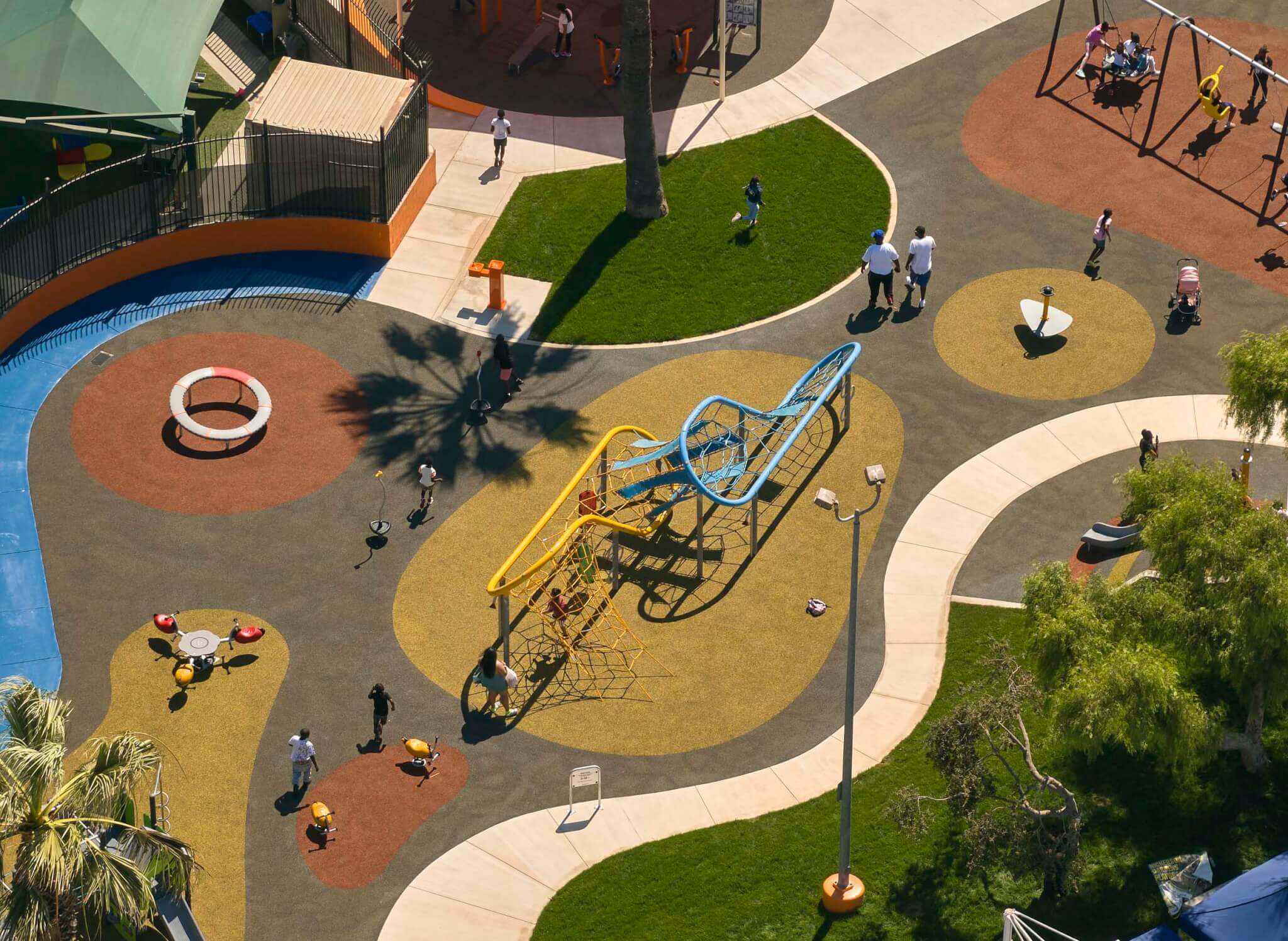
Red Hot Chili Peppers’ Flea patroned a playground designed by NBBJ and ESI Design
At the Paul Revere Williams–designed Nickerson Gardens—a public housing development in Watts, Los Angeles, California—residents enjoyed the opening of a new amenity: a playground patroned by Flea, the lead bassist for the Red Hot Chili Peppers.
The 17,656-square-foot Nickerson Gardens Playground was designed pro bono by NBBJ and its experience design studio ESI Design. It houses playground equipment and exercise facilities, among this swings, slides, climbing nets, and a carousel. The ground of the new play space is made from recycled court surfaces.
Flea fundraised for the project and has been active in the area for some time. During the pandemic, the musician gave out food and face masks to the community. He played with his band at the park’s ribbon cutting.
Southampton, New York residents are strongly against a Peter Marino–designed public park
In Page Six news, a plan for new park in Southampton, New York designed by architect Peter Marino has local residents shying away from the promise of greenspace. The backstory of the drama goes like this: Billionaire John Paulson announced he’s offering to sell parts of his 10-acre Old Trees estate in Southampton to the Lake Agawam Conservancy which has ideas to work with Marino on a public park for the community.
A rowdy town meeting this summer saw local residents come out strongly against the park. One local told reporters, “Southampton is the last place that needs a public park. There’s already a park in Southampton and nobody uses it.”
Renderings of Marino’s proposal presented at the town meeting would deliver a “world-class garden” to Southampton and triple the size of the existing park to span over 12 acres on a plot of land that affords waterfront views.
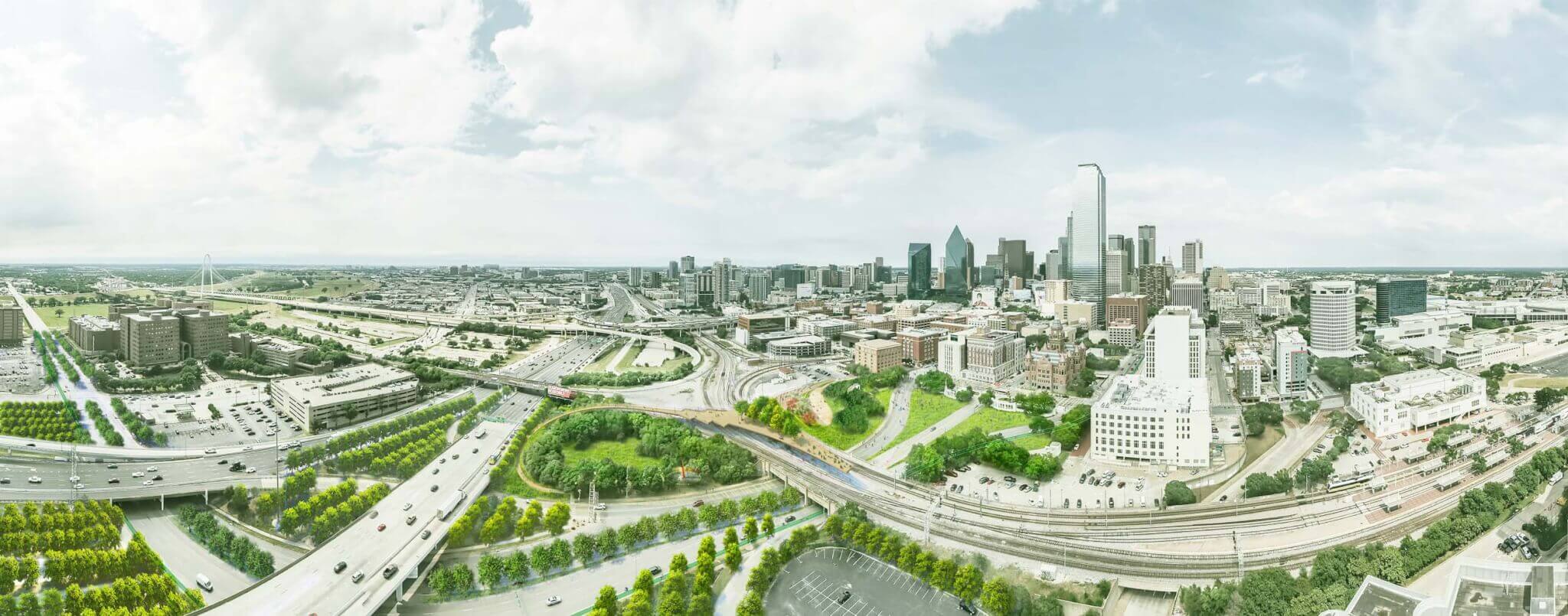
In Dallas, a vision to reinvent Dealey Plaza engages the site with its past
The history of Dallas’s Dealey Plaza, where three Black men were lynched in 1860, is overshadowed by the assassination of President John F. Kennedy. The site has been long ignored, and in need of an innovative vision that makes good with its bad history, while also addressing urban needs and changes.
The Reinventing Dealey Plaza project commissioned by Dallas Morning News and led by architecture critic Mark Lamster, Chris Reed of Stoss Landscape Urbanism, and Monica Ponce de Leon of MPdL Studio sets out to do exactly that with a plan that prioritizes pedestrians and community spaces. At the heart of the plan is what has been lost for so long in the site: engagement with its past.
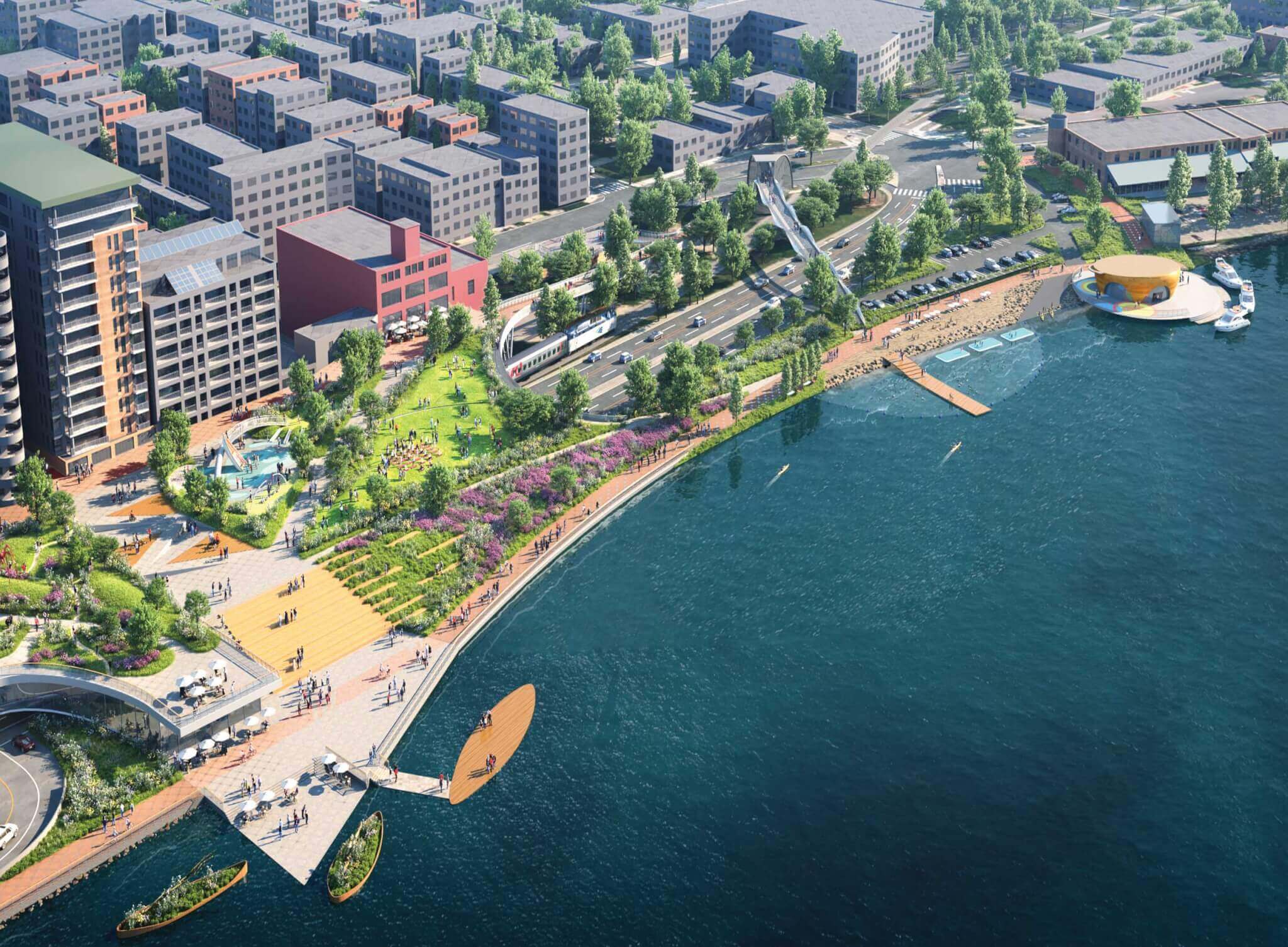
Sasaki won a design competition to reimagine the Monona Lake waterfront in Madison, Wisconsin
Sasaki was selected as the winning design firm in a competition to reimagine the Monona waterfront in Madison, Wisconsin. Sasaki beat out other finalists, namely Field Operations and Agency Landscape + Planning, with a thoughtful vision for the Lake Monona waterfront. The site slated for an overhaul extends from Law Park, at the lake’s northwest down toward Olin Park. It is best known for Frank Lloyd Wright’s Monona Terrace, an event and convention center that overlooks the lake.
Sasaki’s proposal titled “Voices of the Lake: Monona’s Waterfront” was designed to amplify the voices of the community around the water. It outlines four zones, the Law Park Ledge, Lake Lounge, Community Causeway, and Olin Overlook, and also proposes a Story Walk where visitors can learn about the original settlers of the land, the Ho-Chunk nation.
The vision also considers pedestrian access from the waterfront to the downtown; widened walking paths, separated bike lanes, and improved intersections—particularly around John Nolan Drive—are designed to reduce vehicular traffic and promote walking in an area not trafficked by pedestrians.








